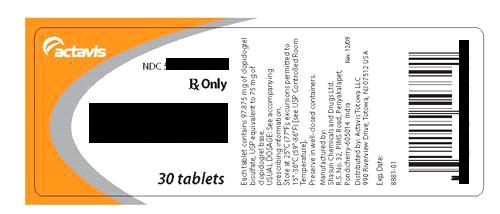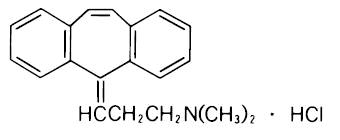
Cyclobenzaprine Hydrochloride 1000 Tablet In 1 Bottle while Breastfeeding
What is Cyclobenzaprine Hydrochloride 1000 Tablet In 1 Bottle used for?
Is Cyclobenzaprine Hydrochloride 1000 Tablet In 1 Bottle safe to use while breastfeeding? Can it interfere with growth and development of my kid?

Nursing Mothers It is not known whether this drug is excreted in human milk. Because cyclobenzaprine is closely related to the tricyclic antidepressants, some of which are known to be excreted in human milk, caution should be exercised when cyclobenzaprine HCl is administered to a nursing woman.
Cyclobenzaprine Hydrochloride 1000 Tablet In 1 Bottle Breastfeeding Analsys
Cyclobenzaprine hydrochloride while Breastfeeding
Low RiskCAS Number: 303-53-7
Relaxant drug of the muscle with action on the Central Nervous System and chemically related to tricyclic antidepressants. At latest update, relevant information on excretion into breast milk was not found. Because of a high plasma protein binding capacity, excretion into breast milk seems to be unlikely. Long-term treatments or those mothers who are nursing a newborn or premature infant would be prudent the use of a known safer alternative or with a shorter elimination half life. Infants should be monitored for sleepiness.
Cyclobenzaprine Hydrochloride 1000 Tablet In 1 Bottle Breastfeeding Analsys - 2
Cyclobenzaprine hydrochloride while Breastfeeding
CAS Number: 303-53-7
If cyclobenzaprine is required by the mother, it is not necessarily a reason to discontinue breastfeeding. However, because there is no published experience with cyclobenzaprine during breastfeeding, other agents may be preferred, especially while nursing a newborn or preterm infant, or when other drugs that can cause sedation are used simultaneously.

What should I do if I am breastfeeding mother and I am already exposed to Cyclobenzaprine Hydrochloride 1000 Tablet In 1 Bottle?
During whole lactation period you shall first discuss with your doctor and then together you shall decide whether you shall take that drug or not however if you have already taken Cyclobenzaprine Hydrochloride 1000 Tablet In 1 Bottle then you shall inform your doctor, But you should not be worried too much as Cyclobenzaprine Hydrochloride 1000 Tablet In 1 Bottle comes in category of low risk drug.
My health care provider has asked me to use Cyclobenzaprine Hydrochloride 1000 Tablet In 1 Bottle, what to do?
Though Cyclobenzaprine Hydrochloride 1000 Tablet In 1 Bottle dose not comes in category of safe drugs rather it comes in category of low risk but if your doctor is aware that you are breastfeeding your baby and has still recommended it then its advantages must be outweighing the risks.
If I am using Cyclobenzaprine Hydrochloride 1000 Tablet In 1 Bottle, will my baby need extra monitoring?
Not much
Who can I talk to if I have questions about usage of Cyclobenzaprine Hydrochloride 1000 Tablet In 1 Bottle in breastfeeding?
US
National Womens Health and Breastfeeding Helpline: 800-994-9662 (TDD 888-220-5446) 9 a.m. and 6 p.m. ET, Monday through Friday
UK
National Breastfeeding Helpline: 0300-100-0212 9.30am to 9.30pm, daily
Association of Breastfeeding Mothers: 0300-330-5453
La Leche League: 0345-120-2918
The Breastfeeding Network supporter line in Bengali and Sylheti: 0300-456-2421
National Childbirth Trust (NCT): 0300-330-0700
Australia
National Breastfeeding Helpline: 1800-686-268 24 hours a day, 7 days a week
Canada
Telehealth Ontario for breastfeeding: 1-866-797-0000 24 hours a day, 7 days a week
